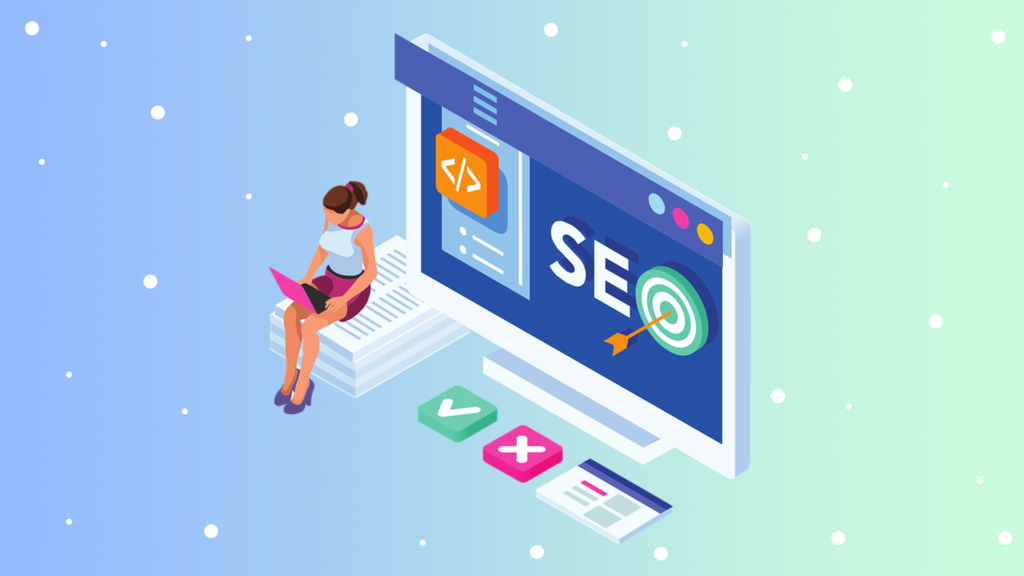
Leveraging AI for SEO
AI is changing the way businesses optimize their content for search engines. Whether you’re just starting or looking to enhance your strategy, understanding how to leverage it for SEO success can significantly impact your marketing effectiveness.
I’m not talking about using AI to create an enormous amount of garbage content online for your SEO strategy. I’m talking about using AI the right way to make sure your content ranks higher and reaches your target audience successfully.
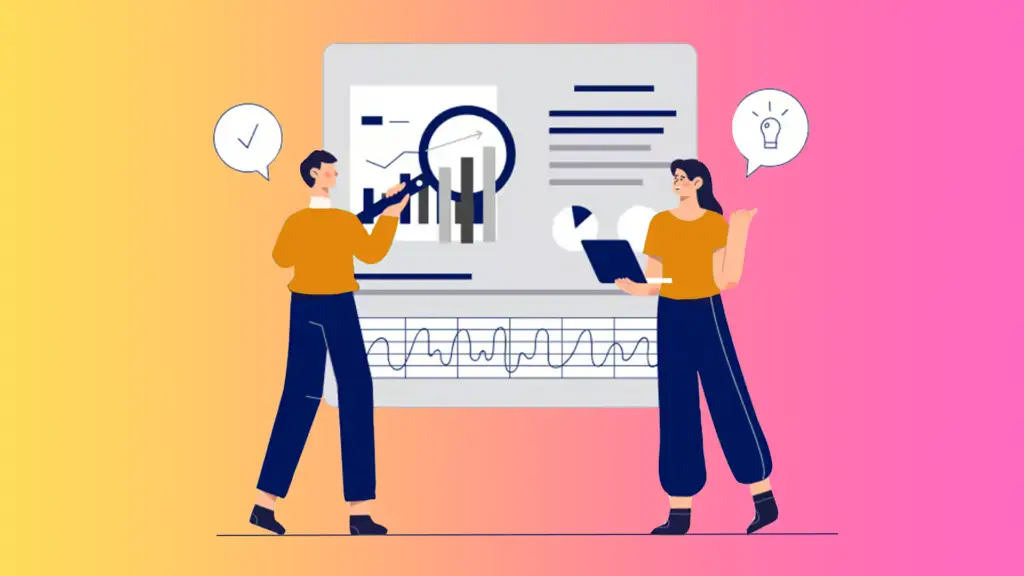
Understanding the Role of AI in SEO
Let’s start by understanding the role of AI in SEO. SEO is constantly changing, ever evolving. Understanding the role of AI is like mastering the latest dance moves – it’s about keeping up with the rhythm of change.
Google, for example, is constantly changing the way its algorithms work to transform how results appear and queries are made on the search results. As a result, it’s getting smarter at understanding the quality of content and whether it provides the answers that users are looking for. Google itself is starting to use AI to display results in the search results, skipping over the part of users having to go into a website to pull answers.
AI has become the engine behind SEO strategies, pumping intelligence into data analysis, content creation, and user experience enhancements. It’s not just about peppering keywords throughout your content anymore. It’s about understanding the dance between user intent and search algorithms, a feat where AI is starting to excel.
As John Mueller, a Webmaster Trends Analyst at Google, states, “AI helps us provide search results that are more relevant and accurate to what users are looking for.”
AI’s contribution to SEO can be largely categorized into three buckets:
- Enhanced Keyword Research: A bright mind never stops learning, and AI tools like IBM’s Watson and Google’s BERT are no exception. They analyze vast troves of search queries to understand context and intent, leading to more refined keyword suggestions. So next time you’re stuck in a semantic quandary, remember that AI can suggest, “What you seek is seeking you.”
- Data-Driven Insights: AI sifts through mountains of data more efficiently than a squirrel hunting for a nut in autumn. With tools like Zapier, businesses can automate data collection and gain insights into competitor strategies without the cloak and dagger entries. Tools like TripleWhale can help you sift through all of your data across different platforms such as Google AdWords, Google Analytics, and your website. This is aggregating data for attribution, allowing you to know exactly where customers are coming from. I recently started using a similar tool called Lebesgue.AI. It has been able to connect all of my data sources together, enabling me to sift through the data and it uses AI to tell me what’s working well and what isn’t.
- Content Optimization: Remember when writing engaging content was just about crafting the next Hemingway novel? Well, AI has joined the party. Tools like Clearscope and MarketMuse use machine learning to analyze top-ranking content, suggesting optimizations to make your pieces soar like literary eagles.
AI’s role in SEO is undeniable and ever-expanding. It’s the faithful copilot that navigates the turbulent winds of search engine algorithms, allowing businesses to fly steadily into the coveted top search results. Embracing AI, just like welcoming surprise family gatherings, could lead to unexpected joys—or in SEO’s case, unprecedented success. But like I’ve said before – you can’t just simply AI your brand. But if you know how to use it to your advantage, magic will happen. So, are you ready to put on your algorithmic dancing shoes?
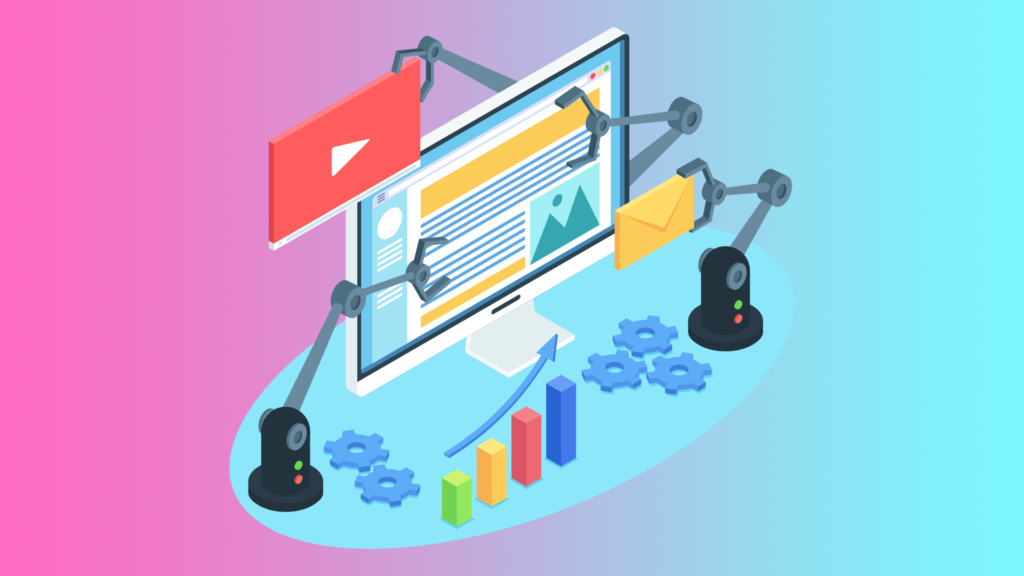
AI-Powered Marketing Tools for SEO
Let’s kick things off with AI-driven keyword research tools. A standout in this space is SEMrush, which is leveraging AI to provide deep insights into keyword trends, search volumes, and competitive analysis. This platform uses sophisticated algorithms to suggest keywords that can supercharge your SEO strategy. According to SEMrush, businesses that leverage AI for keyword optimization witness a 30% boost in search engine rankings.
Next up is automated content creation. Tools like Copy.ai and Jasper are revolutionizing content marketing by using natural language processing (NLP) to generate engaging, SEO-friendly text. I am personally a huge fan of WriteSonic and regularly use it for posting long blogs! These platforms are perfect for creating everything from catchy headlines to long-form blog posts, helping me maintain a consistent content pipeline. According to a study published in Forbes, businesses using AI for content creation report a 50% time savings and a 5% increase in content engagement. To be clear, though, I use AI as a guideline for me to lay out my content, but it’s not just copy and paste!

And who could forget about AI-powered analytics tools? Platforms like Google Analytics 4 are integrating AI to provide deeper insights into consumer behaviour. The tool’s machine learning capabilities allow it to predict user actions, helping businesses to tailor their marketing strategies more effectively. Forbes recently highlighted that leveraging AI for analytics can increase marketing ROI by up to 30% due to better-targeted campaigns (source: Forbes).
Finally, let’s not overlook the power of AI in advertising. Programmatic advertising platforms like AdRoll are using AI to automate the ad buying process, optimizing ad placements in real-time and thereby increasing efficiency. A report from eMarketer shows that spending on programmatic ads is expected to reach $7 billion this year, with significant contributions from AI integration.
Dr. Tessa Lyons, a renowned digital strategist, aptly puts it, “AI is not just a tool but a partner in the digital marketing landscape, helping marketers make sense of vast amounts of data and personalize user experiences at scale” (source: Digital Summit).
By harnessing these AI-powered marketing tools, startups and small businesses can unleash the potential of their SEO strategies. As I’ve touched on in organizing strategic insights with Letterly, embracing automation and smart tools is key to thriving in a tech-driven world. More than just keeping up with trends, it’s about navigating the digital ocean with a smart compass!
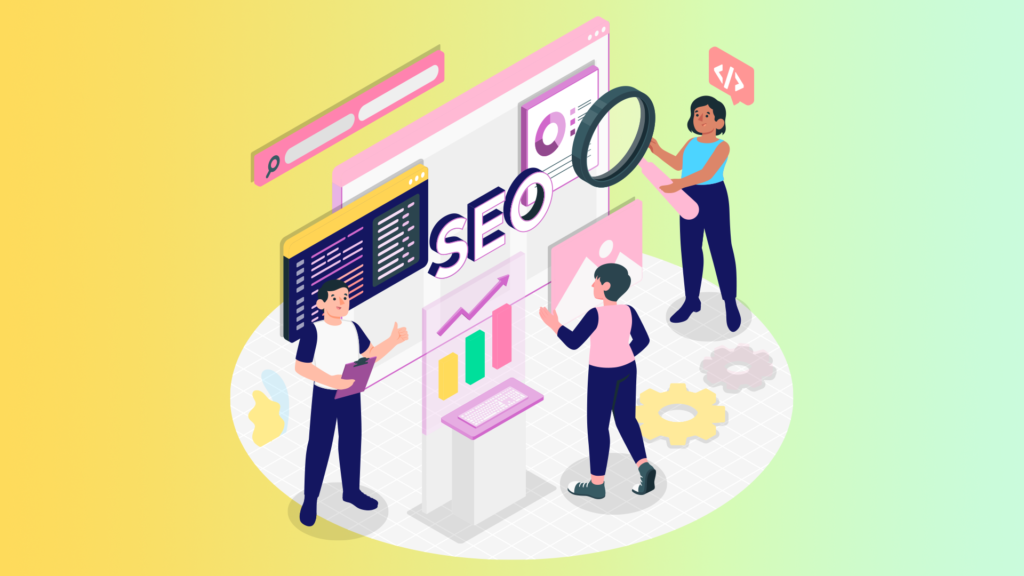
Enhancing SEO with Predictive Analytics
Enhancing your SEO strategy is no longer just about the right keywords or backlinks—it’s about being a digital fortune teller with predictive analytics. This equips marketers with the foresight to anticipate trends, user behaviours, and market shifts before they even happen. Imagine having the marketing equivalent of a crystal-ball, but minus the incense and mysterious music. Predictive analytics enables businesses to make informed decisions by analyzing large datasets to predict future outcom es, ensuring your SEO strategy doesn’t just respond to current patterns but proactively targets upcoming opportunities.
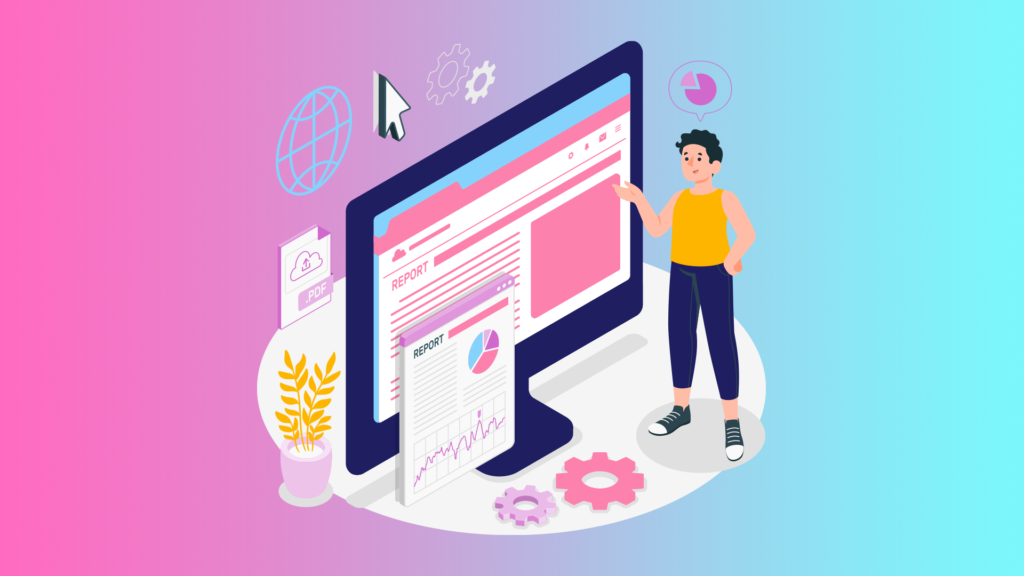
According to a report by Mordor Intelligence, the predictive analytics market is projected to grow at a CAGR of 23.2% over the next five years, underlining its importance in digital marketing narratives. The use of AI in predictive analytics adds unmatched precision. But how exactly does this work for SEO? Let’s break it down:
- Trend Forecasting: Instead of reacting to what’s trending, predictive analytics allows you to analyze past data and forecast future trends. This can help optimize content strategies based on what your audience is going to be interested in, not merely what they’re already searching for.
- Behavior Predictions: AI can track user interactions and behaviors with staggering accuracy, enabling businesses to understand what users are likely to do next. This foresight helps in tailoring landing pages, content flow, and click paths to enhance user experience and engagement.
- Keyword Strategy Optimization: By utilizing machine learning in SEO, predictive analytics can optimize your keyword strategy, helping identify keywords that will become valuable before they peak.
If you’re looking to delve deeper into self-learning tools like ChatGPT that can further enhance these capabilities, you can explore 3 ways I self-learn with ChatGPT. The ability to automate and predict key SEO metrics with AI technologies not only boosts efficiency but significantly scales your digital presence with minimal effort.
Predictive analytics in SEO is much like mastering the art of anticipation in chess—you’re not just thinking one move ahead, you’re strategizing your game seven moves deep. And when your competitors are still figuring out their next step, you’re already en route to checkmate, sipping coffee and pondering your next venture. Speaking of competitors, find out how I use Zapier to track my competitors without them knowing, it just might add another tool to your predictive arsenal.

Personalization Algorithms in SEO
When it comes to SEO, personalization algorithms are like those magical elves you wish you had during college—there to make things easier and more efficient. Thanks to advancements in artificial intelligence in marketing, personalization in SEO is not just a buzzword but a reality making meaningful impacts. Let’s dive into how leveraging AI-driven personalization algorithms can bring SEO success to your business.
Personalization algorithms custom-tailor user experiences by analyzing data such as search behavior, location, device usage, and even the weather (yes, you read that right!). These algorithms use this information to create personalized recommendations, thereby enhancing user engagement and ultimately boosting your SEO ranking. According to a study by Econsultancy, 93% of companies see conversion rates increase with personalized marketing approaches. It’s not just me who thinks personalized SEO is cool; the stats back it up!

Here’s a bullet-point breakdown of how personalization algorithms improve SEO:
- User Engagement: By serving relevant content, personalization algorithms boost click-through rates (CTR) and reduce bounce rates, which are crucial metrics in SEO.
- Content Recommendations: Just like Netflix recommends movies based on your viewing history, AI suggests the best content for your users, keeping them engaged longer.
- Behavioral Targeting: Algorithms track user behavior across different platforms, tailoring web pages that fit individual tastes and preferences.
Take, for example, North Face, which uses IBM’s Watson to help customers find the perfect jacket. By asking personalized questions and analyzing the responses, Watson helps streamline the shopping experience, demonstrating how AI-driven personalization can be applied in e-commerce.
Apropos of many successful applications, a well-implemented personalization algorithm can skyrocket your SEO success. It’s like the unseen narrator—quietly working behind the scenes yet essential for the story to unfold. For those seeking a deeper dive into how I apply AI for marketing success, check out how I organize my brain with Letterly for inspiration.
In conclusion, if you’re not leveraging personalization algorithms in your SEO strategy, you might as well be stuck using dial-up while the rest of us are enjoying fiber optics. As always, new technologies and strategies like these call for persistent learning and adaptation. You might want to explore 3 ways to self-learn with ChatGPT to stay one step ahead in your marketing game.

AI in Competitive Analysis and SEO
When it comes to staying competitive in the digital landscape, AI in Competitive Analysis and SEO offers a game-changing advantage. By harnessing AI, businesses can delve into their competitors’ strategies, unlocking insights that were previously buried amidst massive data. For instance, AI-powered tools for market analysis can analyze backlinks, keywords, and content performance across competitors, effectively giving you a treasure map to inform your own SEO strategy.
One significant benefit of using AI in competitive analysis is its ability to process large datasets quickly and accurately. According to a 2023 report by the MIT Sloan Management Review, businesses employing artificial intelligence in marketing analysis reported a nearly 30% improvement in their competitive intelligence capabilities. Imagine not just checking what your competitors are doing, but literally peering into the future with predictive analytics, allowing you to anticipate shifts in competition and consumer behavior.
How exactly does AI streamline the competitive analysis process? Let’s break it down:
- Data Aggregation: AI tools can crawl the web continuously, gathering real-time data about competing businesses. Whether that’s guest blogging metrics or social media mention frequencies, AI doesn’t sleep.
- Keyword Optimization: By using AI, you can not only identify high-performing keywords but also spot newly trending ones before they become mainstream. This is essential for optimizing content and staying one step ahead of the competition.
- Sentiment Analysis: AI applications can assess online sentiment about your competitors, helping you fine-tune your messaging to target weaknesses or capitalize on your competitors’ strengths.
Augmented reality in marketing and AI for competitor tracking are two areas where AI’s powers are just beginning to be unleashed. As experts often say, “knowledge is power,” and in the era of AI, knowledge is automated, data-driven, and remarkably savvy. So if you’re exploring how to scale efficiently, diving into AI-driven SEO and competitive analysis might just be your next big leap. As you ponder on that, remember: AI might be the skeleton key needed for unlocking tomorrow’s market share controls.

The Future of SEO and AI
As we stand on the precipice of a new era in digital marketing, it’s incredibly exciting to think about how AI and SEO will continue to evolve together. The future of SEO undeniably lies in the ability of AI to transform how we understand and implement optimization strategies. From harnessing the power of machine learning to refine search algorithms to employing AI tools like ChatGPT for self-learning and efficient content creation, the marriage of SEO and AI is a brand strategist’s dream come true.
Research by Salesforce highlights the role of AI in marketing, predicting that 84% of marketers will use AI to personalize customer interactions by 2025. This shows a clear trajectory toward AI-driven personalization becoming a staple in SEO practices. It’s much like having a barista remember your coffee order – except your website already knows your visitors’ preferences.

The potential of AI marketing tools doesn’t stop at personalization. AI is set to redefine various components of SEO, from voice search optimization to predictive analytics. Google’s use of AI in improving search results through its RankBrain system, as reported by Search Engine Journal, is a testament to the significant influence of AI on search engine performance.
And let’s not forget the AI-driven content marketing that promises to make automated content creation as engaging and insightful as human-generated articles. Just imagine if robots could appeal to human emotions — it’s a sci-fi writer’s paradise!
The fusion of AI and SEO marks not just an evolution but a revolution in digital marketing strategies. As a lifelong learner and enthusiast for emerging technologies, I have consistently emphasized the importance of embracing such innovations. You might have seen me around the Big Sur Marathon, often pondering how to integrate AI into operations (probably while trying to beat my personal best time!). The future beckons those who are willing to adapt and leverage these groundbreaking technologies, and I encourage you to step boldly into this new frontier.



